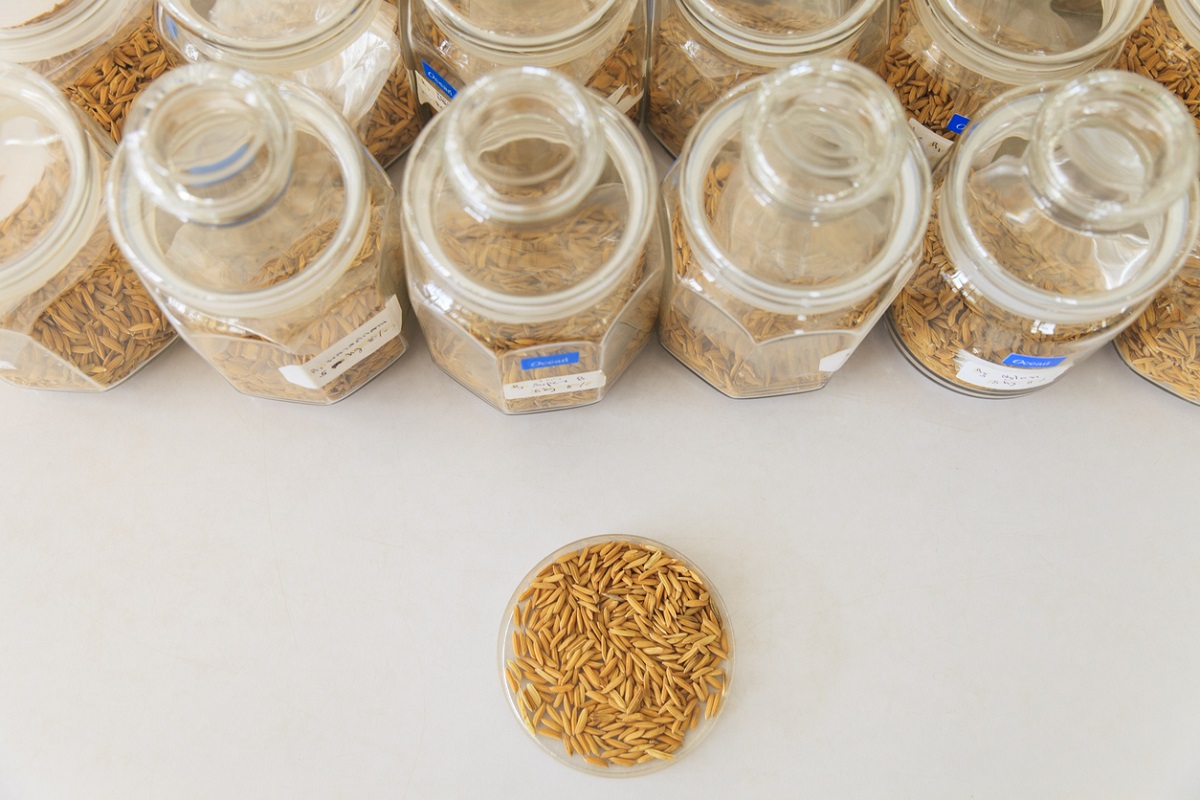
CRISPR-Cas9 Used to Develop Marker-free Carotenoid-enriched Rice
March 18, 2020| |
University of California researchers reported the use of CRISPR-Cas9 for marker-free targeted insertion of a carotenoid biosynthesis cassette in two sites in the rice genome. Their findings are available in Nature Communications.
Targeted insertion of the transgene at chosen locations in the plant genome is a favorable option in plant improvement, instead of random insertions using conventional methods. Most of the cases of targeted gene insertion in plants relied on the presence of a selectable marker gene in the insertion cassette that occurred at low frequency with relatively small DNA fragments. Thus, the researchers used optimized CRISPR-Cas9 to insert a large cassette to boost carotenoid content in marker-free rice plants without affecting the physical traits and yield of the plant.
Whole-genome sequencing revealed the absence of off-target mutations by Cas9 in the engineered plants. Thus, the study provides evidence about the potential of targeted gene insertion of marker-free DNA in rice using gene editing, which could be a means to genetically improve rice and other crops.
Read the research article in Nature.
| |
You might also like:
- Pocket K No. 54: Plant Breeding Innovation: CRISPR-Cas9
- Vietnamese Scientists Develop Carotenoid-rich Maize
- CRISPR Editing Tested on Carotenoid Synthesis Genes in Tomato
Biotech Updates is a weekly newsletter of ISAAA, a not-for-profit organization. It is distributed for free to over 22,000 subscribers worldwide to inform them about the key developments in biosciences, especially in biotechnology. Your support will help us in our mission to feed the world with knowledge. You can help by donating as little as $10.
-
See more articles:
-
News from Around the World
- Multiple Approaches Necessary to Achieve Global Targets to Combat Poverty and Hunger
- Ugandan President Ready to Sign GMO Bill into Law
- Study Documents Ghana's Public Perception Towards GM Food, Labeling
- Canada Celebrates 25 Years of GM Approvals
- UPenn Develops Lettuce That Stimulates Bone Building Cells
- First Comprehensive Map of the Arabidopsis Proteome Now Available
- European Consumers Exposed to Consistent Fear-Mongering from Anti-Biotech Groups for Two Decades
-
Research Highlights
- Drought Tolerant Potato Developed thru Overexpression of GhABF2
-
Plant
- CRISPR-Cas9 Used to Develop Marker-free Carotenoid-enriched Rice
-
Health
- Viable Vaccine Candidate for COVID-19 Developed Using Proprietary Plant-based Technology
-
Read the latest: - Biotech Updates (January 28, 2026)
- Gene Editing Supplement (January 28, 2026)
- Gene Drive Supplement (February 22, 2023)
-
Subscribe to BU: - Share
- Tweet

